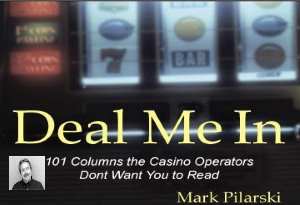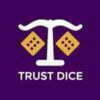What are your thoughts of making all the numbers 4-5-6-8-9-10 in any order before a seven? This of course is the Fire Bet, which some casinos now offer. The pay-off is 1000 to 1. Norm M.
Top thought: After doing the back-of-the-napkin math, giving the house a 25 percent edge on your play, I wouldn’t call smart gaming.
A number of casinos now offer what’s called a “Fire Bet” that pays if the shooter makes at least 4 different points (among these: 4, 5, 6, 8, 9,10) before the seven rolls. Usually playing from $1 to $5, but sometimes as high as $10, the bettor is betting that a hot shooter will set and make multiple valued points; in order for the points to count towards the Fire Bet, they must all be different. For instance, a player that hits a point of 5 twice would get credit for only one point on his or her Fire bet, rather than two, because it was the same number.
The fire symbol the dealer places on the layout will mark the different points as the shooter makes them. For the first three points hit, there are no payoffs. However, increasing odds are paid for the fourth, fifth, and sixth points; 25 to 1 odds are paid for the fourth point, which would be $125 for a $5 bet; the fifth point pays at 250-1 odds, which is $1250 for a $5 bet; and the sixth point pays, as you state, considerably more at 1,000 to 1 odds: $5000 for five buckaroos.
While having an enormous payday of $5,000 for a $5 bet might whet your appetite to grab the bet, it doesn’t change the fact that this wager is easily the worst one you can make on a crap game, with a huge house edge of 24.70%.
I just hit a sizeable jackpot and was issued a W-2G by the casino. Can you recommend any books in relation to gambling and taxes so that I can explore all my options? Vance F.
To paraphrase the French police inspector in Casablanca, far too many players are “shocked, shocked” at being issued a W-2G for a slot jackpot as little as $1,200, and that Uncle Sam kindly requests some of that windfall. Thankfully a few authors learned on the subject of gambling and taxes have written books on this bewildering subject
The few details the IRS provides to guide gamblers through the tax maze are general, vague, open to individual interpretation, even contradictory,” so says Marissa Chien (a tax consultant and gambler) and Jean Scott in their book, Tax Help for Gamblers. Scott and Chien cover everything from the handling of wins and losses; the gambling session; player and casino recordkeeping; filing your tax return; the W-2G withholding rules; and guidelines for state-tax considerations.
Another book that covers this complex subject is, How to Keep More of What You Win: A Gambler’s Guide to Taxes, by Walter L. Lewis (CPA). Covering all the subjects above and then some, it too is an excellent resource when it comes to all the tax-related concerns of gambling wins. What I like best about this book, Norm, is how easily Lewis explains such complicated tax issues in a simple, easy to understand manner for tax law neophytes.
As tax time approaches once again, now the only thing standing in the way of gamblers and the IRS is, the tough part, actually hitting a jackpot.
Gambling Wisdom of the Week: “The attraction of gambling is the possibility of wealth without work.” –San Braids, The Intelligent Guide To Texas Hold’em Poker




















